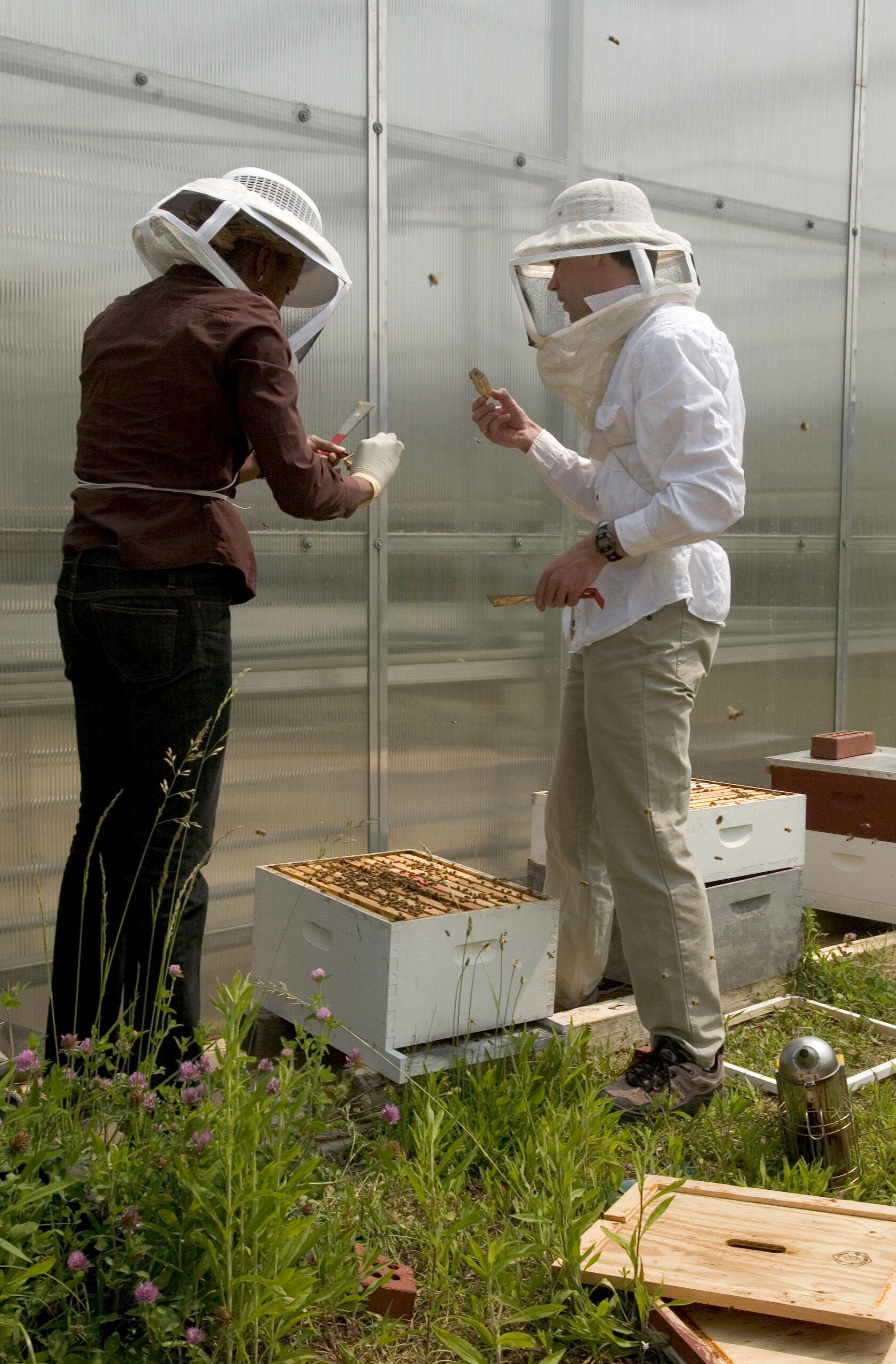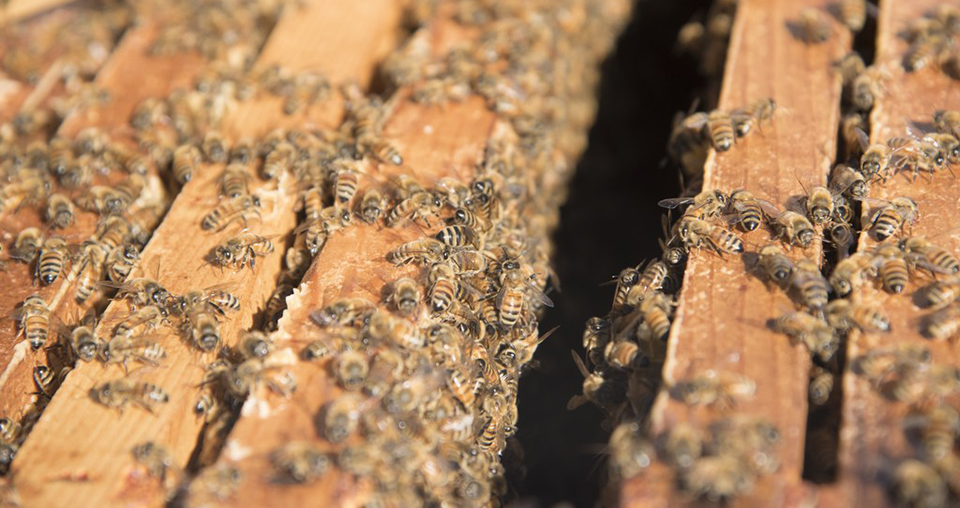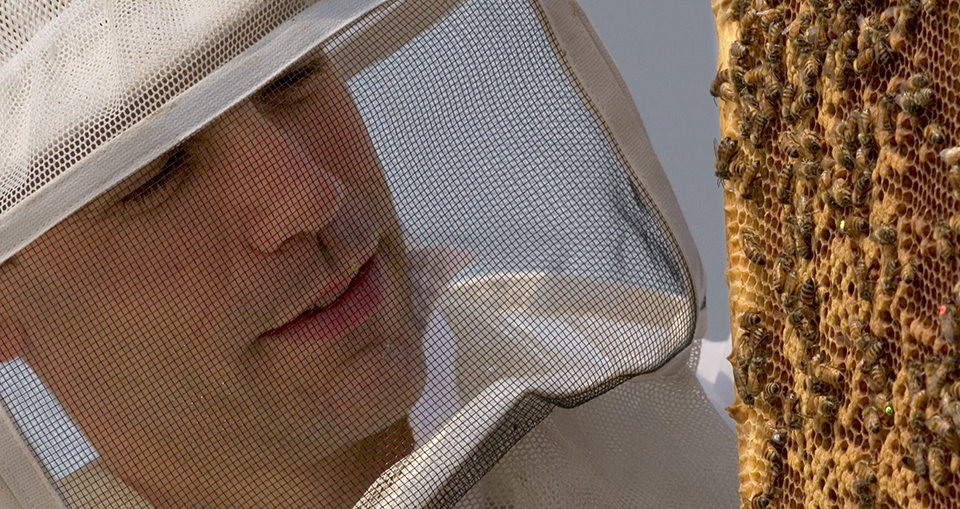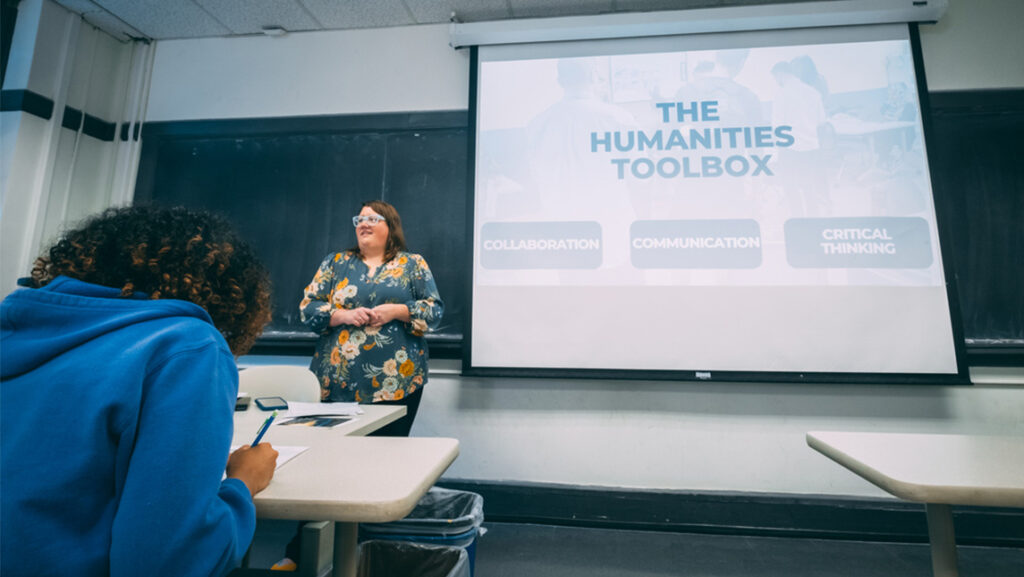Redacted from UNCG press release
Biology Professor Olav Rueppell has been awarded a nearly $1 million grant from the United States Department of Agriculture (USDA) to find a practical, cost-effective, non-toxic solution to a global problem — the ongoing decline of honey bee health. Rueppell and his collaborators are developing strategies to combat Varroa destructor, a mite central to the issue.
“The Varroa mite is widely regarded as the main culprit affecting honey bee health,” Rueppell says.
“Beekeepers spend a lot of money and effort trying to control the mites. Unfortunately, current methods are ineffective, expensive, and often involve the introduction of toxic chemicals into hives. Better, natural control methods and tools are urgently needed.”

In addition to playing key roles in many ecosystems, honey bees are our most important commercial pollinator both nationally and on a global scale, with one study finding a $14.6 billion annual impact on the US economy alone. “One third of the food Americans eat depends on honey bees,” says Rueppell.
The methods explored in the newly funded project are particularly interesting because they focus on a nontoxic approach to fighting Varroa infestations — amplifying honey bees’ own natural resistance to the mites. The researchers are looking at the triggers of “hygienic behavior,” in which nurse bees uncap wax cells to remove mite-infected honey bee larvae. By identifying the chemical signals that can increase this behavior, the researchers plan to help honey bees help themselves.
Rueppell’s team, which includes postdoctoral researcher Kaira Wagoner and investigators at North Carolina State University (Professor Coby Schal), The University of California – Riverside (Professor Jocelyn Millar) and The University of Minnesota (Professor Marla Spivak), will work directly with beekeepers in North Carolina and Minnesota to test their innovations and share lessons learned. They will also collaborate with extension specialists to disseminate new findings, with the ultimate goal of helping the honey bee industry nationally and globally.
“The work we’re undertaking with this grant could be a major step in improving honey bee health,” says Rueppell.
The $999,319 grant covers three years and was awarded by the USDA’s National Institute of Food and Agriculture, through its Agriculture and Food Research Initiative Food Security Challenge Area.
For more information go to: http://ure.uncg.edu/prod/cweekly/2017/04/18/dr-olav-rueppell-4 & https://newsandfeatures.uncg.edu/kaira-wagoner-honey-bee-research

Redacted from UNCG press release



